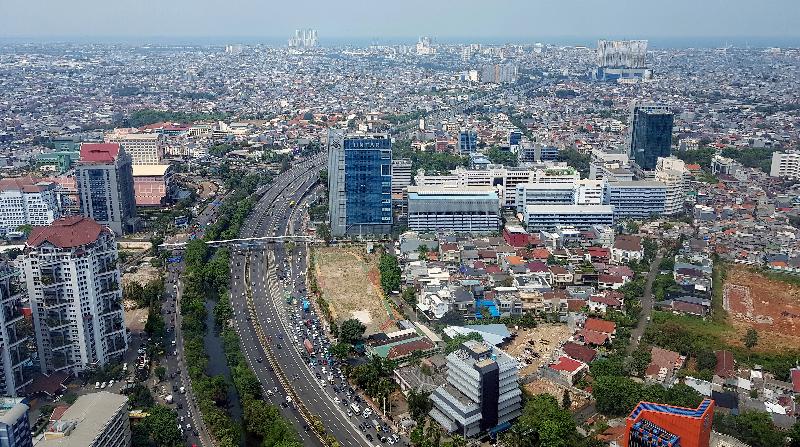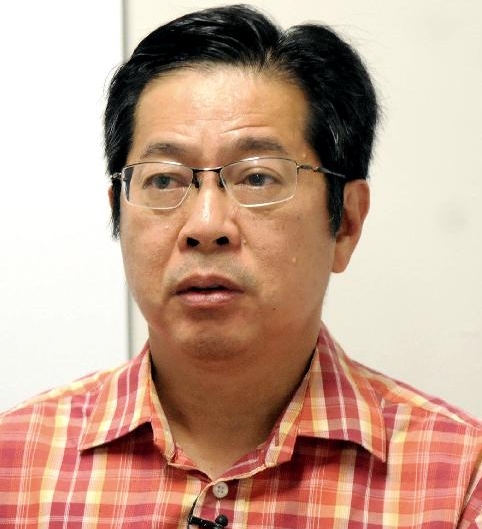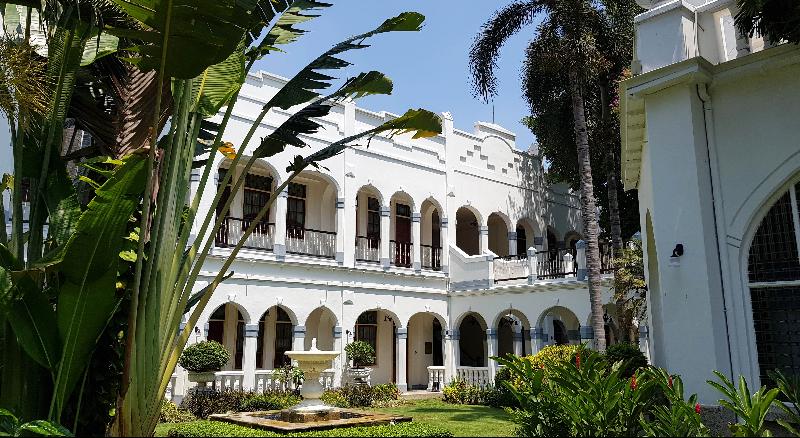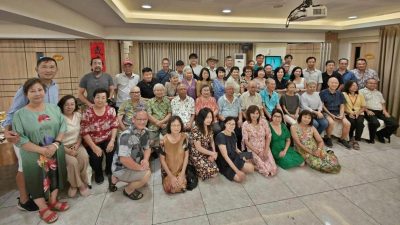
28 years ago, Chu Seang Ming from Bukit Mertajam, Penang, accepted the company's proposal to fly to Surabaya in Indonesia to become among the earliest Malaysian "pioneers" in the vast archipelagic republic.
Today, the general manager of a canning and packaging factory says he has no regrets for the decision he made.
At 54 now, he had a unique opportunity to grow up in a very different culture and environment, and has witnessed the phenomenal changes taking place in Indonesia's second largest city.
Chu admitted that indeed he came to Indonesia looking for better salary and position. He arrived in Surabaya in February that year, and the factory began operation in September.
Unlike the headquarters in Malaysia, PT Rex is only responsible for OEM packaging and exporting to the US and Europe. It doesn't have its own line of products.
Surabaya was very different from what he had imagined.
"Although the city was already Indonesia's second largest 27 years ago, it only had two major thoroughfares in the city center, all the rest being mud roads that got very muddy whenever it rained."
In spite of this, Chu never gave up, and in a few years' time, he was promoted as the general manager of the Indonesian branch, a position he has been holding until this day.
Under his leadership, the Indonesian company boasts an annual turnover of approximately US$20 million, about the same as the Malaysian headquarters.
Noon break

Despite the early hiccups in communication given the fact people in Surabaya speak in Javanese dialect, his subordinates were very cooperative. In addition, Indonesia has a massive human resource market and it is not a problem getting workers to fill up any vacant position. As a result, Indonesian workers are more inclined to appreciate their current job opportunities when compared to Malaysians.
Moreover, religious freedom is big plus in the country's economy. Workers embracing any different can mingle together without any problem and there will be absolutely no conflicts.
"When I arrived here in 1992, the average salary here was about RM200. It is at least RM1,200 today.
"The government has also revised the human resources law and a worker works at most 40 hours a week.
"Luckily almost all our workers are willing to work overtime and of course we are happy to pay them overtime allowances."
Due to the relatively short working hours, Indonesians enjoy relatively good quality of life.
In Surabaya, Chinese businessmen used to open their shops at six in the morning and close the shop for siesta in noon and reopen at four and operate until eight at night.
"Although most businesses in Surabaya have done away with the noon break due to increasingly stiff competition, such practice is still retained in smaller towns.
"Indonesians generally treasure good quality of life. This is what workers in Malaysia don't get to enjoy."
Easy for foreigners to start a company
Not many Malaysians work or live in Surabaya. Several years ago, an association of Malaysians and Singaporeans in Surabaya was set up with a membership of 150.
"The association used to meet once every month in the beginning but later changed to once in three months. Today, with many people busy with their own businesses and families, we only contact through phone and will very seldom meet."
It is not that difficult to start a company in Indonesia provided that an Indonesian is appointed a nominal director who will bear the biggest legal liabilities in the event of any major problem.
"Foreigners working in Indonesia need to have work visas that cost US$1,200 a year each while their incomes are taxable.
"Anyone intending to stay here longer can apply for permanent residence, like me.
"Having stayed here for so many years, I can say that everyone here, including foreigners, are entitled to equal treatment in the country, unlike in Malaysia.
"The government welcomes foreign investments and is willing to provide the necessary assistance, especially after the re-election of Jokowi."
Chu feels that Surabaya holds tremendous potential even after the capital is relocated to East Kalimantan, as the city is only about an hour's flight away from the new administrative capital.
"I would boldly say this is the best time to invest in Indonesia. With 340 million people, the country has an enormous consumer market ten times the size of Malaysia, not to mention the many business-friendly government policies."
Chu's wife is a Malaysian, and she moved to Indonesia with him after their marriage. Their two children were born in Surabaya but are still Malaysian citizens.
"My two children were raised and schooled in Surabaya and they are now furthering their studies in Australia and Kuala Lumpur respectively although all their friends are in Indonesia.
"They are sentimentally more attached to Indonesia than Malaysia, and I can understand if one day they choose to convert to Indonesian citizenship."
As for Chu himself, he has no plans to live in Indonesia permanently, and will go back to Malaysia upon retirement.

ADVERTISEMENT
ADVERTISEMENT


































